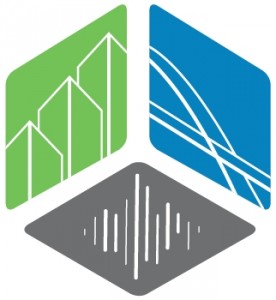 Civil infrastructure systems such as bridges, towers, and large buildings need to be strong to withstand an earthquake or a sudden impact. However, they also need to be flexible and able to move and absorb shock in order to survive. The infrastructure Testing and Applied Research (iSTAR) Laboratory in the Department of Civil and Environmental Engineering at Portland State University features a large platform that is able to simulate the seismic shaking of real earthquakes and is used to test the resiliency of engineered structures and their materials. The laboratory’s capability is of enormous value to public agencies and engineering firms that are designing structures for the earthquake-prone regions of the Pacific Northwest. Faculty and students conduct research that focus on the effects of extreme loads on our infrastructure, the utilization of innovative materials, and the non-destructive testing and monitoring of structural system before, during, and after a disaster.
Civil infrastructure systems such as bridges, towers, and large buildings need to be strong to withstand an earthquake or a sudden impact. However, they also need to be flexible and able to move and absorb shock in order to survive. The infrastructure Testing and Applied Research (iSTAR) Laboratory in the Department of Civil and Environmental Engineering at Portland State University features a large platform that is able to simulate the seismic shaking of real earthquakes and is used to test the resiliency of engineered structures and their materials. The laboratory’s capability is of enormous value to public agencies and engineering firms that are designing structures for the earthquake-prone regions of the Pacific Northwest. Faculty and students conduct research that focus on the effects of extreme loads on our infrastructure, the utilization of innovative materials, and the non-destructive testing and monitoring of structural system before, during, and after a disaster.
Masters and PhD degree programs are offered in our department, where students work closely with faculty on research projects. Outreach and technology transfer are also an important function of the laboratory through tours that highlight the laboratory’s efforts and seminars for those in the industry.
